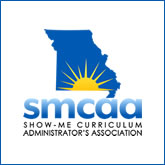February 6 @ 9:30 am – 11:30 am
Promoting and sustaining active learning is the simple definition of Agency. With the researched effect size of .56, agency can make a significant contribution to student success. Our students need regular opportunities to take responsibility for their learning through researching, writing and speaking about meaningful content. Join us for our quarterly webinar on learning about student agency and easy ways to provide it.
During this session we will provide:
- A workable definition of Agency and how it works in the classroom
- Examples and ideas of how to embed agency into instruction.
- Some samples of the work by teachers in the field
Come join us and your fellow colleagues from across the state as we explore the idea of creating and sustaining student responsibility for their own learning.
Target Audience: Curriculum Directors, Administrators, Instructional Coaches, content teachers interested in ways to include more active learning and student responsibility for learning.
Materials Needed/Interactive Level: Mid-level interaction as participants will be asked to reflect and share throughout the workshop.
SMCAA Member Fee: Free – If you have ideas about how to create and sustain student agency, we look forward to your sharing your ideas!
